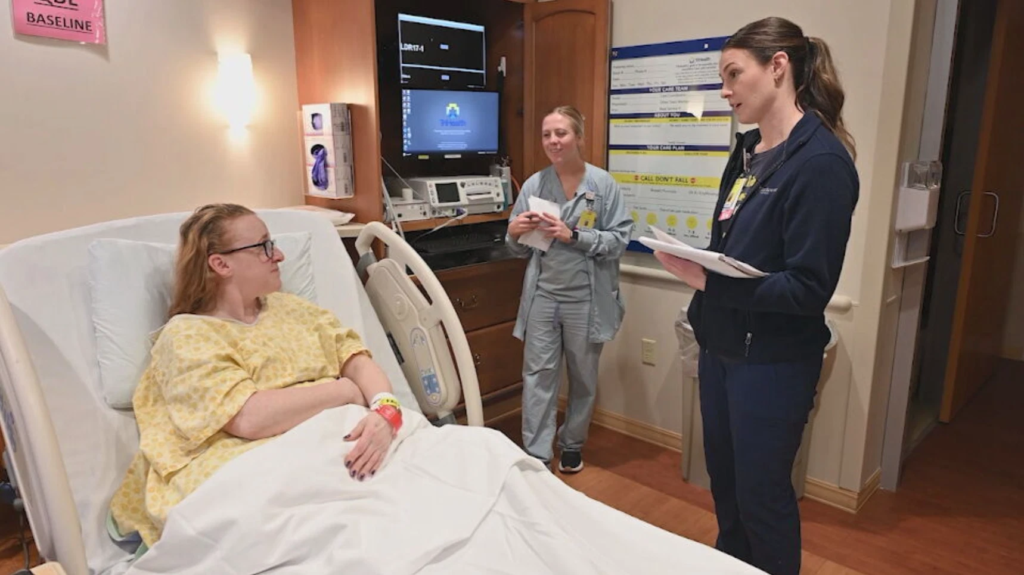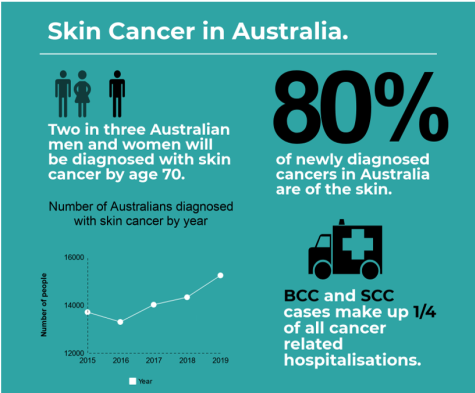The healthcare industry is undergoing a transformative shift towards a more proactive approach, with a growing emphasis on preventive care. This shift aims to tackle diseases before they become serious health problems, promoting overall wellness and reducing the long-term costs of treatment. NW Preventive Primary Care is one such healthcare model that focuses on a comprehensive approach to health. Central to this approach is the emphasis on PulseColon, an innovative term reflecting the importance of colon health in preventive primary care.
In this article, we will explore the concept of NW Preventive Primary Care PulseColon, breaking down its significance, benefits, and how it works together to promote better health outcomes, especially in colon health.
What is NW Preventive Primary Care?
Understanding the Core of Preventive Primary Care
NW Preventive Primary Care refers to a healthcare model that prioritizes prevention rather than just treating illness. This system revolves around regular checkups, early detection, vaccinations, and health screenings. By emphasizing wellness and early intervention, the goal is to prevent conditions from escalating into serious or chronic diseases.
In NW Preventive Primary Care, healthcare providers work closely with patients to monitor health metrics such as blood pressure, cholesterol levels, and weight, among others. This comprehensive care approach allows for timely intervention when needed, lowering the chances of patients suffering from severe health conditions in the future. With a focus on long-term health and disease prevention, NW Preventive Primary Care provides holistic care to ensure individuals stay healthy for years to come.
The Benefits of Preventive Primary Care
There are several benefits associated with this preventive approach:
- Early Disease Detection: Through regular screenings and health assessments, healthcare professionals can detect health problems before they become critical.
- Chronic Disease Management: Preventive primary care helps manage chronic conditions such as diabetes, heart disease, and asthma, reducing complications.
- Reduced Healthcare Costs: By preventing the onset of serious conditions, patients spend less on emergency care and long-term treatment.
- Improved Quality of Life: Continuous health monitoring, along with lifestyle counseling, ensures that individuals can live healthier and more fulfilling lives.

The Importance of PulseColon in Preventive Primary Care
What is PulseColon?
The term PulseColon refers to a targeted focus on colon health as part of preventive primary care. Colon health is critical because colorectal cancer, one of the most common forms of cancer, can develop silently without any early symptoms. It’s only through routine screenings that potential issues are identified before they progress.
In preventive primary care, PulseColon emphasizes the importance of proactive monitoring and lifestyle changes to prevent colon-related diseases, particularly colorectal cancer. Colon health is an essential component of a patient’s overall well-being, and by adopting regular screenings and preventive practices, individuals can protect themselves from serious complications.
Why is Colon Health Important?
Colon health is a critical part of overall well-being, as the colon plays an essential role in digestion and waste elimination. Issues with the colon, such as the formation of polyps or tumors, can lead to severe consequences, including colorectal cancer. According to the American Cancer Society, colorectal cancer is the second most common cancer in the United States. Early detection through screenings can significantly reduce the risks associated with this cancer.
Factors that contribute to colon health issues include:
- Age: Risk increases with age, particularly after 50.
- Family History: Genetics can play a crucial role in colon health.
- Dietary Habits: A diet high in red meat and low in fiber increases the risk.
- Sedentary Lifestyle: Lack of physical activity contributes to poor colon health.
Preventive practices, such as early screenings and maintaining a healthy lifestyle, can dramatically reduce the risk of developing severe colon issues. This is where PulseColon comes into play—focusing on colon health as part of the overall preventive care strategy.
The Role of Colon Screenings in Preventive Care
Colonoscopies and Their Importance
Colonoscopies are essential for detecting early signs of colorectal cancer and other colon-related issues. During this screening, doctors examine the inner lining of the colon and rectum for any abnormalities, such as polyps, which may indicate early-stage cancer.
In the context of NW Preventive Primary Care, colonoscopies and other screenings are scheduled based on an individual’s risk factors. For example, if a person has a family history of colon cancer, they may be advised to undergo screenings earlier or more frequently.
Why Colonoscopies Matter:
- Early Detection: Polyps can be removed during the procedure before they have a chance to turn into cancer.
- Prevention: By identifying abnormal growths early, colonoscopies prevent the development of colorectal cancer.
- Risk Assessment: Regular screenings help healthcare providers assess an individual’s risk and adjust preventive strategies accordingly.
While a colonoscopy may seem like a daunting procedure, the benefits far outweigh the temporary discomfort, making it an invaluable tool in PulseColon and preventive primary care.
Other Screening Methods
While colonoscopies are the gold standard for colon screenings, there are other methods that can help detect colon issues, such as:
- Stool Tests: These tests check for hidden blood in the stool, which could indicate the presence of colorectal cancer.
- CT Colonography: Also known as virtual colonoscopy, this non-invasive test uses CT scans to create detailed images of the colon.
- Flexible Sigmoidoscopy: This procedure allows doctors to examine the lower part of the colon for abnormalities.
These alternative methods may be recommended based on the patient’s individual risk factors or preferences.
How NW Preventive Primary Care PulseColon Works Together
In the context of NW Preventive Primary Care PulseColon, colon health is monitored alongside general wellness. By integrating PulseColon into a broader healthcare approach, the patient receives holistic care focused on prevention.

Integrating Preventive Care with Colon Health
For individuals, adopting preventive care as part of their regular health regimen allows for better outcomes over time. When combined with PulseColon practices, patients receive:
- Personalized Health Plans: Preventive care is tailored to the individual, considering their age, lifestyle, and medical history.
- Comprehensive Monitoring: Regular check-ups include assessments for various diseases, including colon-related issues.
- Prevention-Oriented Lifestyle Guidance: Education on diet, exercise, and screening schedules ensures long-term health.
This integrated approach ensures that both common and critical health concerns, such as those related to the colon, are managed effectively and proactively.
Conclusion of NW Preventive Primary Care and PulseColon
NW Preventive Primary Care PulseColon is a vital component of a comprehensive healthcare strategy aimed at promoting long-term health and preventing serious diseases, especially colon-related conditions. Through early screenings, lifestyle guidance, and personalized care, this approach ensures individuals remain healthy while reducing the risks associated with colorectal cancer. Preventive primary care, when combined with a focused effort on colon health, creates a robust system for ensuring better health outcomes and quality of life. By embracing these practices, individuals can enjoy a healthier future with fewer medical complications.
FAQs about NW Preventive Primary Care and PulseColon
What age should I start having colonoscopies?
Colonoscopies typically begin at age 50 for most individuals, but if you have a family history of colon cancer, you may need to start earlier. Discuss with your healthcare provider for personalized recommendations.
How often should I get a colonoscopy?
If your colonoscopy results are normal, you generally need one every 10 years. However, if polyps or abnormalities are found, your doctor may recommend more frequent screenings.
Are there any lifestyle changes that can improve colon health?
Yes, maintaining a healthy diet rich in fiber, fruits, and vegetables, along with regular physical activity, can improve colon health and reduce the risk of colorectal cancer.
What is the difference between a colonoscopy and a virtual colonoscopy?
A colonoscopy involves inserting a flexible tube to examine the colon, while a virtual colonoscopy uses CT scans to create detailed images of the colon without the need for insertion of a tube.
Can PulseColon prevent colorectal cancer?
While PulseColon itself is not a treatment, its focus on regular screenings and preventive practices plays a significant role in detecting and removing precancerous growths before they turn into cancer.
Also Read :
- Duaction – Understanding the Concept, Benefits, and Future of Dual Education!
- XtraMath.org – Mastering Math Facts for Lifelong Success!
- Wachappe – Understanding the Concept, Meaning, and Digital Curiosity!
- GM Socrates – Meaning, Context, and Growing Interest!
- Konversky – Concept, Purpose, and Growing Digital Relevance!





